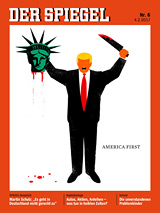Here are some excerpts:
“Liberty,” Roosevelt said at the Democratic Party’s convention in 1936, “requires opportunity to make a living — a living decent according to the standard of the time, a living which gives man not only enough to live by, but something to live for.” His administration, working with Congress, enshrined the right of workers to bargain collectively, imposed strict rules and regulators on the financial industry, and created Social Security to provide pensions for the elderly and disabled.
...Over the past half century, the fabric of American democracy has been stretched thin. The nation has countenanced debilitating decay in its public institutions and a concentration of economic power not seen since the 1920s. While many Americans live without financial security or opportunity, a relative handful of families holds much of the nation’s wealth. Over the past decade, the wealth of the top 1 percent of households has surpassed the combined wealth of the bottom 80 percent.
...For those at the bottom, moreover, the chances of rising are in decline. By the time they reached 30, more than 90 percent of Americans born in 1940 were earning more than their parents had earned at the same age. But among those born in 1980, only half were earning more than their parents by the age of 30.
The erosion of the American dream is not a result of laziness or a talent drought. Rather, opportunity has slipped away. The economic ladder is harder to climb; real incomes have stagnated for decades even as the costs of housing, education and health care have increased. Many lower-income Americans are born into polluted, impoverished neighborhoods, with no decent jobs to be found.
...The wealthy are particularly successful in blocking changes they don’t like. The political scientists Martin Gilens of the University of California, Los Angeles, and Benjamin Page of Northwestern have calculated that between 1981 and 2002, policies supported by at least 80 percent of affluent voters passed into law about 45 percent of the time, while policies opposed by at least 80 percent of those voters passed into law just 18 percent of the time. Importantly, the views of poor and middle-class voters had little influence.
...“We have come to a clear realization of the fact that true individual freedom cannot exist without economic security and independence,” Roosevelt told the nation in 1944.
...Advocates of a minimalist conception of government claim they too are defenders of liberty. But theirs is a narrow and negative definition of freedom: the freedom from civic duty, from mutual obligation, from taxation. This impoverished view of freedom has in practice protected wealth and privilege. It has perpetuated the nation’s defining racial inequalities and kept the poor trapped in poverty, and their children, and their children’s children.It's an engineered disaster. As former World Bank chief economist and Nobel laureate, Joe Stiglitz, is always quick to remind us, the rampant inequality that brings America low is neither market- nor merit-based. It is legislated, enshrined in tax codes and ancillary legislation.
...If individual income had kept pace with overall economic growth since 1970, Americans in the bottom 90 percent of the income distribution would be making an extra $12,000 per year, on average. In effect, the extreme increase in inequality means every worker in the bottom 90 percent of the income distribution is sending an annual check for $12,000 to a worker in the top 10 percent.
...The purpose of the federal government, Lincoln wrote to Congress on July 4, 1861, was “to elevate the condition of men, to lift artificial burdens from all shoulders, and to give everyone an unfettered start and a fair chance in the race of life.”

























